- Home
- Roy J. Snell
Johnny Longbow Page 10
Johnny Longbow Read online
Page 10
CHAPTER X TREACHERY IN THE NIGHT
"I hear them! They are coming! Oh, Grandfather! Johnny Thompson! They arecoming! The caribou are coming!"
As on that other occasion, the girl's words were uttered in a lowwhisper, yet so tense were her feelings that her whispered words left inJohnny Thompson's mind the impression of a sharp, shrill cry.
At once the boy's mind was in a whirl. Had she heard them? Were theytruly coming? Faye Duncan's ears were keen as a fox's. Her imaginationalso was keen. Had imagination deceived her? He had heard nothing.
"If they are coming, they may not pass this way." This he whispered tothe girl. "We must not hope too much."
"No, we must not," she answered quietly. "But I did hear it distinctly,the crack-crack of their hoofs! The wind brought in the sound. It's dieddown now. I can hear it no longer. But," she whispered tensely, "theymust come! They must!"
To this Johnny agreed. Three days had passed since they arrived at theEskimo camp. In that time, enheartened and strengthened by the whiteman's caribou meat, the Eskimo had killed with bow and arrow fiverabbits, three foxes and eight ptarmigan. But what were these among somany? The caribou meat was gone. Rabbit, fox, ptarmigan, all were gone,and starvation stared both Eskimos and whites in the face.
As the caribou had delayed their coming, there had been grumbling amongthe Eskimos. An aged witch doctor had said that the presence of the whitemen in the village had offended the spirits of all dead caribou and thatthey had told the living caribou to go north over some other route.
"We shall all starve," the Eskimo had said, shaking with fear of thefuture.
"If only they were not such children!" the old Scot had said to Johnny."If they had more courage and determination they might live a long timeon small game. But, having become accustomed to living upon game taken bythe rifle, they see only death ahead when no ammunition is to be had."
In the midst of all this waiting and doubting an Eskimo had come runningin from a long hunt in the distant hills. He had seen a band of caribou.They were coming.
"How many?" Johnny had asked eagerly.
"Desra! Desra!" (plenty! plenty!) The man had spread his arms wide.
At once all was noise and confusion. It had been with the greatestdifficulty that Gordon Duncan had silenced their noisy chatter and hadorganized the hunt that was to mean life or death to the whole band.
Women and children were sent away into the hills. One band of men wasstationed at the right of the lakes. These were to rush in at the propertime and urge the caribou on. A second group was concealed in a clump ofwillows close to the narrow neck of water which the caribou would expectto cross. These, at the proper time, would turn them to another courseand force them to a swimming passage.
Carefully concealed in a second clump of willows on the opposite bankwere the true hunters. Seven Eskimos, the older men who retained someskill with bow and arrow, were here. So too were the three whites.
"It's not going to be easy," Johnny told himself, "especially for thegirl. We will be wading deep in stinging water. And these natives havebeen able to provide us with no waterproof skin garments for ourprotection. The sea Eskimos could have given us hip boots of sealskin."
With this thought he was led to wonder that a people who had dwelt for solong a time upon the border of the sea should have come inland to live.
"It's not so strange, after all," he told himself. "It is so in otherlands. In Borneo there are the sea dwellers and the mountain tribes. InSiberia are the Reindeer Chukchees and the Sea Hunting Chukchees. Itseems--"
His thoughts were broken off by a sharp whispered,
"There! There! Don't you hear them?"
Johnny listened and, as he held his breath, above the dry rustle of deadwillow leaves, he did catch the unmistakable crash and rattle of anoncoming army of caribou.
"God grant that they may not turn back!" said Gordon Duncan as hewhispered a fervent prayer to his God that He might prove that day thatHe, the great Father, and not the spirit of some dead animal, directedthe flight of wild birds and the courses of the herds of all wildcreatures.
Johnny thought again of the chilling water where a film of thin ice wasforming, and shuddered.
Knowing that their wait might be long, he had spent much time inpreparing a comfortable place of concealment. He had cut armfuls ofslender willow shoots to which the dry leaves still clung. From these hehad made a soft cushioned resting place. About this he had built a tightwall of leafed branches. This wall kept out the wind. Here, huddled closetogether, they were comfortable indeed. Compared to this, the verythought of the sweeping north wind and the cold black water sent a chillto his very marrow.
"Perhaps," he whispered hesitatingly, "perhaps it might be that you'd dowell to stay here." He was speaking to the girl.
"Stay here?" The girl's tone showed surprise.
"It--it's going to be hard out there, and--and a bit dangerous. There areenough native hunters. We have supplied them with weapons."
"I--" The girl hesitated. There can be no doubt but that there was anangry retort upon her lips. She, after all, was but human, and themoments that had just passed had been tense ones.
One look at Johnny's honest, earnest face, and the remark died unuttered.
"I would not be worthy of my Scotch ancestry," she said after a moment ofsilence, "nor of my grandfather, if I did not go when the call comes."
After that, for a long time, as the click of hoofs and clash of antlersgrew louder, there was silence in the place of hiding. As the girl sathalf hidden by willow branches the dry leaves rustled to the time of herwildly beating heart.
"There!" Johnny whispered at last. "There! They have taken to the water.Now is the time."
Creeping through the bushes until they were at the brink of the water,they plunged silently in.
"Good!" Johnny exclaimed hoarsely, "The Eskimos are doing their partnobly."
It was true. A thin line of hunters, hip deep in the water, stoodawaiting the great drove of caribou who had come too far to turn back.
A half minute more, and an arrow sped; another and yet another. Came agreat splashing and thrashing of waters. In his dying frenzy a cariboubeat an Eskimo into the freezing water. The Eskimo, bow in hand, was upin an instant and drawing to shoot again.
So went the battle. Drenched to the skin by water thrown upon him by therushing herd, the vanguard of which had even now reached the bank, theold Scot stood his ground and drew such a bow as never in his life had hedrawn before, while back to back with him the girl did her part.
Ten minutes of nerve wrecking strain, and all was over. Not, however,until food for many a long moon was supplied for every member of thestrange little band.
"We-e-l-l," said the old Scot as a half hour later, dressed in dry furgarments, loaned him by an Eskimo, he sat beside a willow bush fire,"with God's help we won. And our God must be thanked."
At that he dropped upon his knees and offered up a prayer of thanks tothe God who provides all that is good. The Eskimos saw and marveled,though perhaps not one of them all understood. To this remote tribe nomissionary had ever come.
It was during the feast following the hunt that a surprising anddisturbing drama was played out before the great roasting fire of thetribe.
A hammer of perfectly good American make lay upon the ground at Johnny'sfeet. He sat munching a delicious bit of broiled steak and wondering howthat hammer had come all the way to these barren lands, what dog team orboat had brought it, how many fox skins it had cost the Eskimo owner, andwhat use it had ever been put to in a land where there are neither boardsnor nails, when of a sudden he conceived of an immediate use for it. Ayoung Eskimo was attempting to obtain the juicy marrow from the bones ofa roast leg of caribou. He was pounding the bone with a round stone. Thestone slipped from his grip. The bone did not break. Again he triedwithout success.
"Here, let me have it." Seizing the bone, Johnny laid it upon a flat rocka
nd crushed it with a single blow of the hammer.
But what was this? As Johnny glanced about him, he found a dark frownupon the face of every Eskimo. As he offered the broken bone with itsrich marrow exposed to the Eskimo boy, who a moment before had appearedso eager to possess it, he was met with a sudden;
"No me! No me!" Then the boy turned and walked away.
It was strange. Johnny could not fathom the mystery of the tribe'sactions. From that very moment they stood aloof. The joyous noise andchatter of feasting was at an end. They gathered in little groups, tospeak to one another in mumbled gutturals. Soon they went to their tents,leaving only the three whites by the dying embers of the feast fire.
"What did I do?" Johnny asked. "Crushed a bone with a hammer, tried to dothe boy a kindness, that was all."
"You may never know," the old Scot's tone was low and serious. "We'dbetter be getting away. Morning will do. We'll sleep. Then we'll go."
"It's a queer way to treat us," Johnny grumbled. "Here we have savedtheir lives, helped them secure food to tide them over, and at once theyturn their backs upon us."
"You must not judge them," said Duncan slowly. "Let God do that. They arebut children. To them every living creature and every dead one too has aspirit. If you offend the spirit of a dead caribou or a musk-ox or wolf,he may do you great harm. There are a hundred things you must do and ahundred others you must not do. You who have lived all your life in thelight of civilization know little enough of the torment that comes frombeing a heathen. But we must sleep if we are to travel to-morrow."
Faye Duncan realized the truth of these last words quite as well as hergrandfather did. Yet, for some reason, as she lay among the deerskinswith her grandfather breathing in peaceful slumber nearby, she foundherself unable to sleep. The day had been an exciting and trying one. Thegreat crisis, in so far as the Eskimos' needs were concerned, had beenreached and passed.
She was about to fall asleep when she thought again of Johnny's strangeexperience with the young Eskimo and the hammer.
At that very moment she caught a slight sound outside the tent. Thesound, coming as it did in the silence of the night, was disturbing.Parting the tent flaps, she looked out. The next moment she barelysuppressed a scream. The tent in which Johnny slept was not ten feet fromtheir own. Moonlight made all bright as day. At that very moment anEskimo with a long knife in his hand was lifting the skins at the back ofJohnny's tent. As he turned half about the girl recognized the youngEskimo of the evening, he who had refused to accept the marrow bonecrushed by Johnny's hammer.

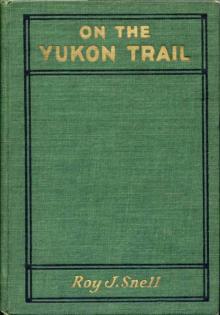 On the Yukon Trail
On the Yukon Trail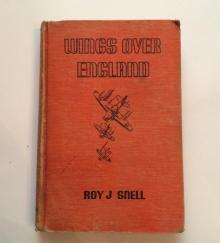 Wings over England
Wings over England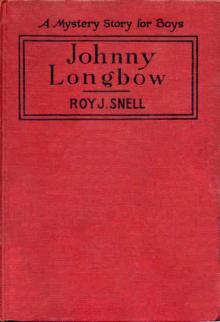 Johnny Longbow
Johnny Longbow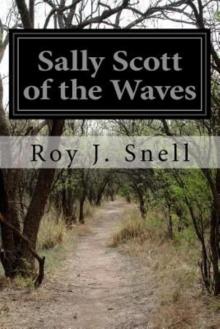 Sally Scott of the WAVES
Sally Scott of the WAVES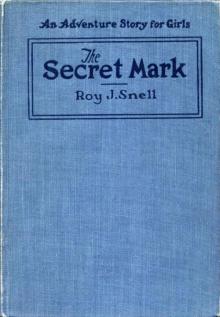 The Secret Mark
The Secret Mark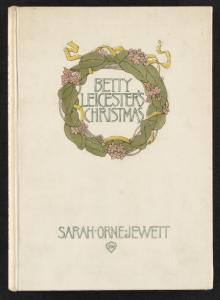 Betty Leicester's Christmas
Betty Leicester's Christmas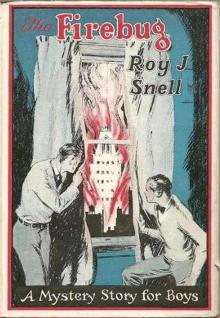 The Firebug
The Firebug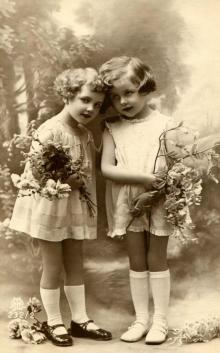 Minnie Brown; or, The Gentle Girl
Minnie Brown; or, The Gentle Girl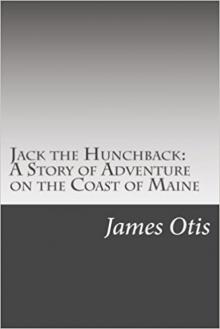 Jack the Hunchback: A Story of Adventure on the Coast of Maine
Jack the Hunchback: A Story of Adventure on the Coast of Maine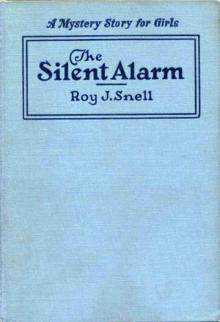 The Silent Alarm
The Silent Alarm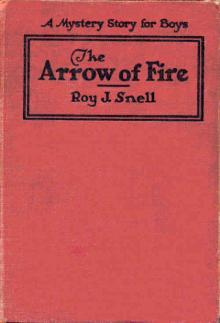 The Arrow of Fire
The Arrow of Fire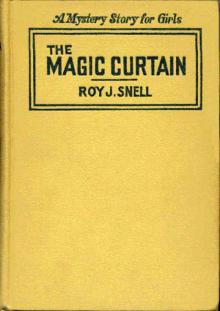 The Magic Curtain
The Magic Curtain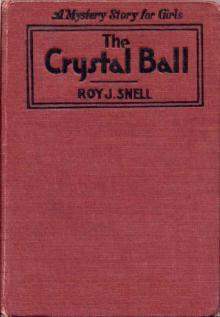 The Crystal Ball
The Crystal Ball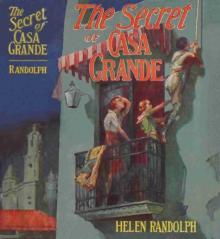 The Secret of Casa Grande
The Secret of Casa Grande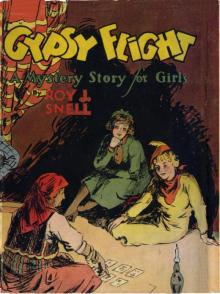 Gypsy Flight
Gypsy Flight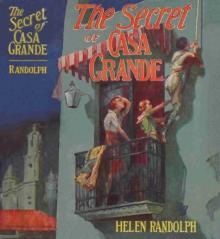 The Mystery of Carlitos
The Mystery of Carlitos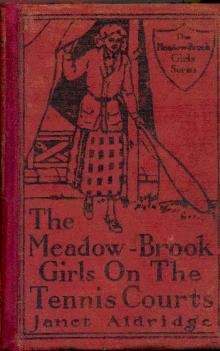 The Meadow-Brook Girls on the Tennis Courts; Or, Winning Out in the Big Tournament
The Meadow-Brook Girls on the Tennis Courts; Or, Winning Out in the Big Tournament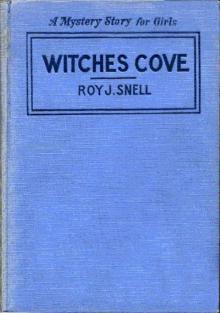 Witches Cove
Witches Cove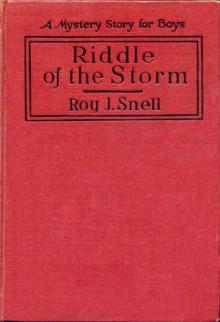 Riddle of the Storm
Riddle of the Storm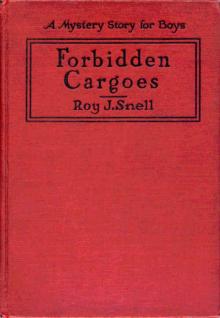 Forbidden Cargoes
Forbidden Cargoes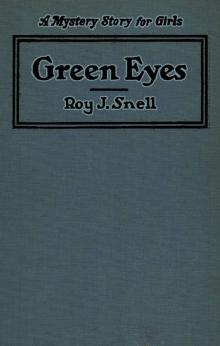 Green Eyes
Green Eyes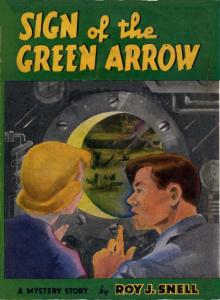 Sign of the Green Arrow
Sign of the Green Arrow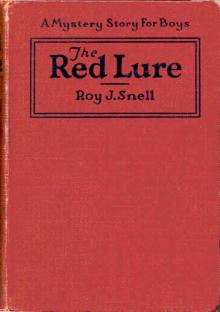 The Red Lure
The Red Lure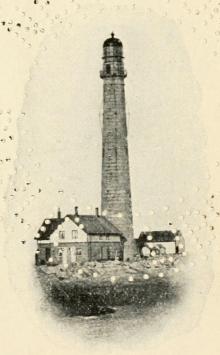 The Light Keepers: A Story of the United States Light-house Service
The Light Keepers: A Story of the United States Light-house Service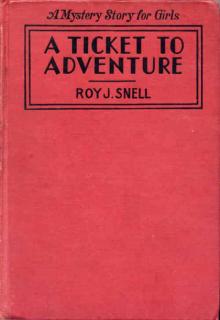 A Ticket to Adventure
A Ticket to Adventure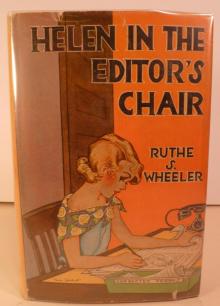 Helen in the Editor's Chair
Helen in the Editor's Chair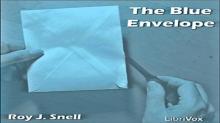 Blue Envelope
Blue Envelope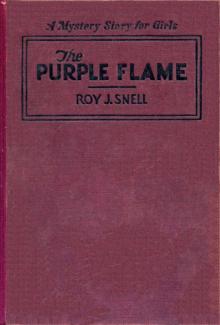 The Purple Flame
The Purple Flame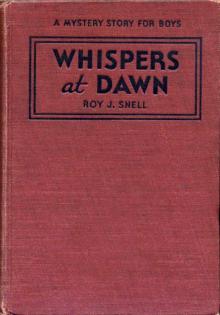 Whispers at Dawn; Or, The Eye
Whispers at Dawn; Or, The Eye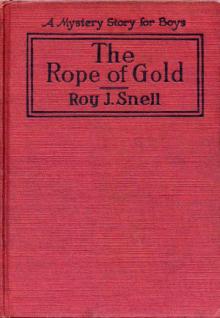 The Rope of Gold
The Rope of Gold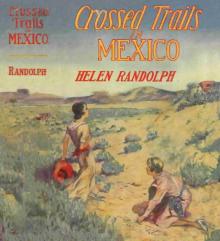 Crossed Trails in Mexico
Crossed Trails in Mexico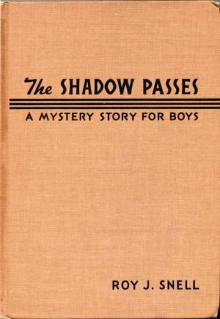 The Shadow Passes
The Shadow Passes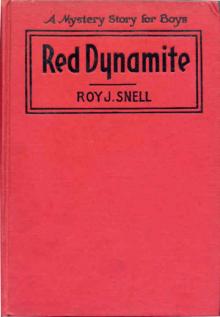 Red Dynamite
Red Dynamite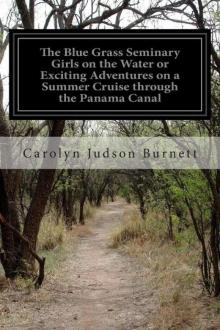 Blue Grass Seminary Girls on the Water
Blue Grass Seminary Girls on the Water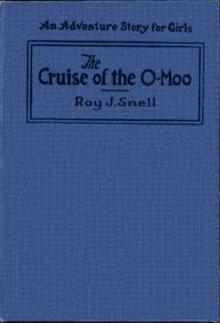 The Cruise of the O Moo
The Cruise of the O Moo